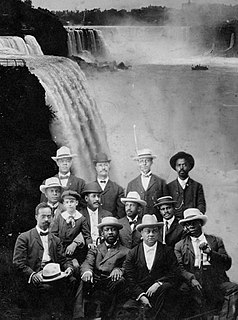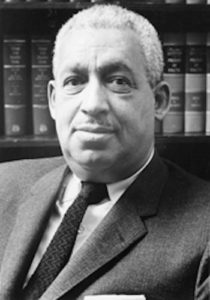
Angela Yvonne Davis is an American political activist, philosopher, academic, scholar, and author. She is a professor at the University of California, Santa Cruz. A feminist and a Marxist, Davis was a longtime member of the Communist Party USA (CPUSA) and is a founding member of the Committees of Correspondence for Democracy and Socialism (CCDS). She is the author of over ten books on class, gender, race, and the US prison system.

The civil rights movement was a political movement and campaign from 1954 to 1968 in the United States to abolish institutional racial segregation, discrimination, and disenfranchisement throughout the United States. The movement had its origins in the Reconstruction era during the late 19th century, although it made its largest legislative gains in the 1960s after years of direct actions and grassroots protests. The social movement's major nonviolent resistance and civil disobedience campaigns eventually secured new protections in federal law for the civil rights of all Americans.

Thurgood Marshall was an American lawyer and civil rights activist who served as Associate Justice of the Supreme Court of the United States from October 1967 until October 1991. Marshall was the U.S. Supreme Court's first African American justice. Prior to his judicial service, he successfully argued several cases before the Supreme Court, including Brown v. Board of Education.
Triple oppression, also called double jeopardy, Jane Crow, or triple exploitation, is a theory developed by black socialists in the United States, such as Claudia Jones. The theory states that a connection exists between various types of oppression, specifically classism, racism, and sexism. It hypothesizes that all three types of oppression need to be overcome at once.
Freedom Summer, also known as the Freedom Summer Project or the Mississippi Summer Project, was a volunteer campaign in the United States launched in June 1964 to attempt to register as many African-American voters as possible in Mississippi. Blacks had been restricted from voting since the turn of the century due to barriers to voter registration and other laws. The project also set up dozens of Freedom Schools, Freedom Houses, and community centers in small towns throughout Mississippi to aid the local Black population.

The Niagara Movement (NM) was a black civil rights organization founded in 1905 by a group of activists—many of whom were among the vanguard of African-American lawyers in the United States—led by W. E. B. Du Bois and William Monroe Trotter. It was named for the "mighty current" of change the group wanted to effect and took Niagara Falls as its symbol. The group did not meet in Niagara Falls, New York, but planned its first conference for nearby Buffalo.
Oppression is malicious or unjust treatment or exercise of power, often under the guise of governmental authority or cultural opprobrium. Oppression may be overt or covert, depending on how it is practiced. Oppression refers to discrimination when the injustice does not target and may not directly afflict everyone in society but instead targets or disproportionately impacts specific groups of people.

Ella Josephine Baker was an African-American civil rights and human rights activist. She was a largely behind-the-scenes organizer whose career spanned more than five decades. In New York City and the South, she worked alongside some of the most noted civil rights leaders of the 20th century, including W. E. B. Du Bois, Thurgood Marshall, A. Philip Randolph, and Martin Luther King Jr. She also mentored many emerging activists, such as Diane Nash, Stokely Carmichael, and Bob Moses, as leaders in the Student Nonviolent Coordinating Committee (SNCC).
Hernandez v. Texas, 347 U.S. 475 (1954), was a landmark case, "the first and only Mexican-American civil-rights case heard and decided by the United States Supreme Court during the post-World War II period." In a unanimous ruling, the court held that Mexican Americans and all other nationality groups in the United States have equal protection under the 14th Amendment of the U.S. Constitution. The ruling was written by Chief Justice Earl Warren. This was the first case in which Mexican-American lawyers had appeared before the Supreme Court.
Black feminism is a philosophy that centers on the idea that "Black women are inherently valuable, that [Black women's] liberation is a necessity not as an adjunct to somebody else's but because our need as human persons for autonomy."
Michael Edward Tigar is an American criminal defense attorney known for representing controversial clients, a human rights activist and a scholar and law teacher. Tigar is an emeritus (retired) member of the Duke Law School and American University, Washington College of Law faculties. He was on the faculty of the University of Texas School of Law from 1983-1998, serving as the Joseph D. Jamail Centennial Chair in Law for much of that time.
The Combahee River Collective was a Black feminist lesbian socialist organization active in Boston from 1974 to 1980. The Collective argued that both the white feminist movement and the Civil Rights Movement were not addressing their particular needs as Black women and, more specifically, as Black lesbians. Racism was present in the mainstream feminist movement, while Delaney and Manditch-Prottas argue that much of the Civil Rights Movement had a sexist and homophobic reputation. The Collective are perhaps best known for developing the Combahee River Collective Statement, a key document in the history of contemporary Black feminism and the development of the concepts of identity politics as used among political organizers and social theorists, and for introducing the concept of interlocking systems of oppression, a key concept of intersectionality. Gerald Izenberg credits the 1977 Combahee statement with the first usage of the phrase "identity politics". Through writing their statement, the CRC connected themselves to the activist tradition of Black women in the 19th Century and to the struggles of Black liberation in the 1960s.

William Robert Ming Jr. was an American lawyer, attorney with the National Association for the Advancement of Colored People (NAACP) and law professor at University of Chicago Law School and Howard University School of Law. He presided over the Freeman Field mutiny court-martials involving the Tuskegee Airmen. He is best remembered for being a member of the Brown v. Board of Education litigation team and for working on a number of the important cases leading to Brown, the decision in which the United States Supreme Court ruled de jure racial segregation a violation of the Equal Protection Clause of the Fourteenth Amendment of the United States Constitution.
African-American women began to agitate for political rights in the 1830s, creating the Boston Female Anti-Slavery Society, Philadelphia Female Anti-Slavery Society, and New York Female Anti-Slavery Society. These interracial groups were radical expressions of women's political ideals, and they led directly to voting rights activism before and after the Civil War. Throughout the 19th century, African-American women like Harriet Forten Purvis, Mary Ann Shadd Cary, and Frances Ellen Watkins Harper worked on two fronts simultaneously: reminding African-American men and white women that Black women needed legal rights, especially the right to vote.

In the United States, black genocide is the characterization that the mistreatment of African Americans by both the United States government and white Americans, both in the past and the present, amounts to genocide. The decades of lynchings and long-term racial discrimination were first formally described as genocide by a now defunct organization, the Civil Rights Congress, in a petition which it submitted to the United Nations in 1951. In the 1960s, Malcolm X accused the US government of engaging in genocide against black people, citing long-term injustice, cruelty, and violence against blacks by whites.
Roscoe Dunjee (1883–1965) was an American civil rights activist, journalist, and editor in Oklahoma City, Oklahoma. He founded the Black Dispatch in 1915, the first black newspaper in Oklahoma City, and used it as a platform to support civil rights and reveal injustices. Long active in the local chapter of the NAACP, in 1932 he brought together several chapters to found the state chapter or branch of the NAACP. He served as its president for 16 years, and was also on the national board of the NAACP.
"Becoming Visible: The First Black Lesbian Conference" was held at The Women's Building in San Francisco, California, from October 17 to 19, 1980. It has been credited as the first conference for African-American lesbian women.
William Haywood Burns was an American lawyer, author, professor, civil rights activist, the second dean of the City University of New York Law School and a Civil Rights Movement leader.

Louis Everett Burnham was an African-American activist and journalist. From his college days, and continuing through adulthood, he was involved in activities emphasizing racial equality, through various left-wing organizations, campaigns and publications in both the northern and southern United States, particularly in New York City and Birmingham, Alabama.







